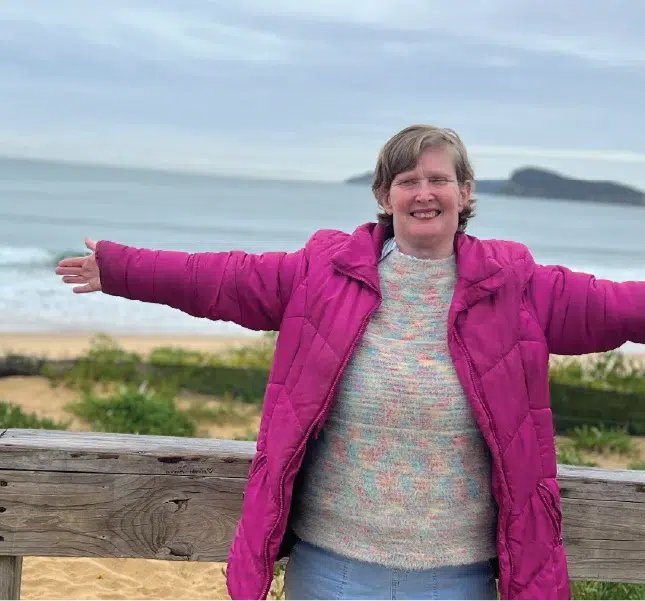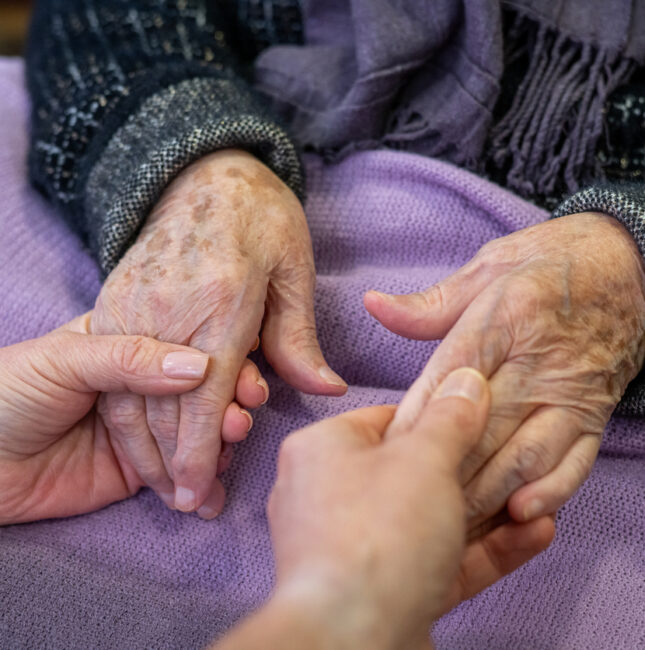Building a support network makes all the difference for Julia
July 15, 2024
It was May 2022, and Julia’s whole body went numb as she sat in a hospital room with her 14 year old daughter, Anna. They’d been discharged from the hospital, but they had nowhere to go. Given the physical, emotional and financial abuse being perpetrated by Anna’s father, they both knew that going ‘home’ wasn’t an option. “I booked a cabin at a caravan park, and we went straight there from the hospital,” Julia recalls.
“I was very afraid and in despair.”
That evening, Julia received a phone call from CatholicCare that will be forever etched in her memory. “The person on the phone said they had organised a hotel for us. They also said they’d help me find long-term accommodation. I was so grateful.”
Julia knew that the promise of stability and safety was key to addressing her daughter’s mental health challenges that had seen her hospitalised.
“That week a lady from CatholicCare visited us with self-care items and she spent some time trying to better understand our situation,” Julia recalls. In the months that followed, Julia and Anna were supported to move from emergency accommodation into community housing.
CatholicCare Caseworker Zara worked closely with Julia and Anna during their time of crisis. “They originally came through our Domestic Violence Response Enhancement (DVRE) after hours crisis line, and we knew straight away that we were dealing with really complex needs, from domestic violence to mental health to lack of support,” Zara says. “Being originally from Brazil, there were a lot of barriers for Julia in accessing supports that ordinarily as a citizen you would have greater access to.”
In addition to supporting Julia to secure housing, CatholicCare provided financial assistance, legal advice, childcare, mediation and mental health support for Anna. “We arranged referrals for counselling and an ADHD assessment for Anna. We also connected them with the school’s wellbeing team and we put Julia in contact with a psychologist,” Zara says. “Mental health will be an ongoing challenge for them, but at least now they have a strong support system. Julia engaged well with the services and took everything on board.”
Julia could not be more proud of how far they have come since that lonely day in the hospital room.
“I am proud that I have been able to help my daughter find ways to be treated. Mental health is still a big stigma in our society, and I think many children and adults suffer without been assessed and supported. I wish that more children could receive the great support we have received.”
Today, Julia is working and volunteering, and Anna is engaging with her passion for music through vocal classes and musical theatre.
“The path is not a straight line, it has bumps,” Julia says. “But I have learnt the importance of being connected. When we have a network around us, life is better and easier. Now I want to use my knowledge and experiences to help others.”
“The path is not a straight line, it has bumps,” Julia says. “But I have learnt the importance of being connected. When we have a network around us, life is better and easier. Now I want to use my knowledge and experiences to help others.”
If you, or someone you know is experiencing domestic or family violence, please call 1800 324 924, email info@catholiccaredbb.org.au or visit our website for more information. Please call 000 if your life is in danger.
CatholicCare recognises that everyone experiences tough times, but sometimes things get really tough and we can’t solve the problems by ourselves. Going through a difficult situation alone can be stressful, confusing and exhausting. You can reach out to any of the organisations here – many are available 24 hours a day. Their experienced staff will listen and support you with care and without judgement. Their websites also include lots of valuable information. You may be referred back to CatholicCare’s many wrap around services.
More news stories like this one
Sarah blossoms at Clarke Road
Find out how the Click & Connect group at the Disability Hub Waitara boosted Sarah's confidence and tech skills over time.
Read MoreIntroducing Crossroad Companions end of life service
When you receive a terminal diagnosis, life can suddenly feel uncertain and overwhelming. Questions arise, roles change, and you may find yourself moving from one medical team to the next. We're here to help.
Read MoreWorld Day of Social Justice – injustice isn’t accidental
World Day of Social Justice isn’t about slogans or good intentions. It’s about facing an uncomfortable truth - the systems we live within do not work equally for everyone, and pretending otherwise costs people their dignity, safety and hope.
Read More


